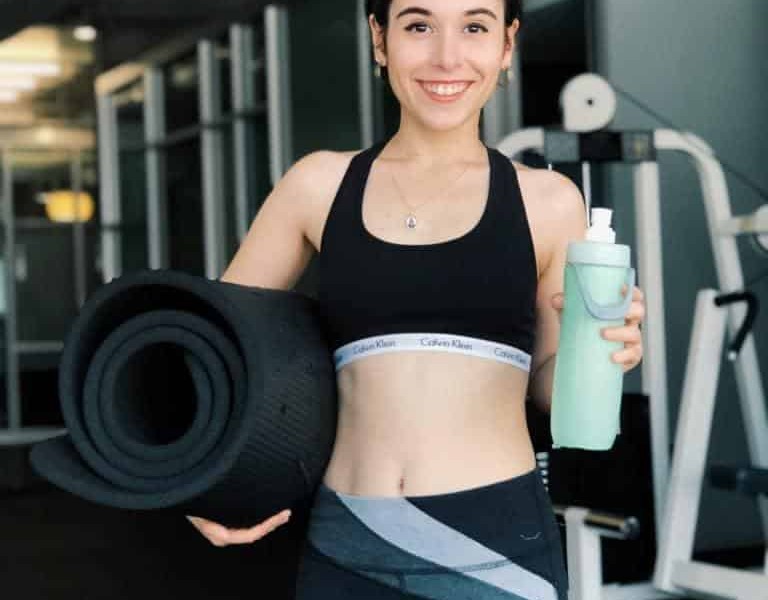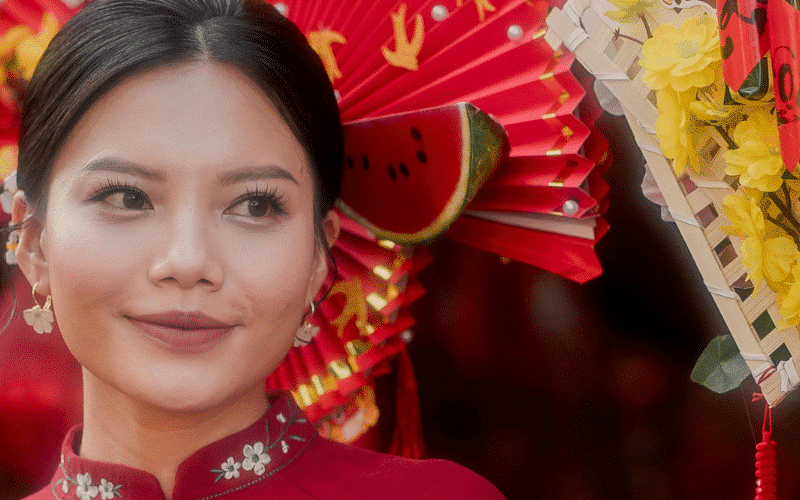Why Diversity in Fitness is Empowering
Growing up as a Disabled Latina meant that while I balanced learning about my language, traditions and customs, I also learned how to care for my disabled body with either Vaporu or antibiotics.

Growing up as a Disabled Latina meant that while I balanced learning about my language, traditions and customs, I also learned how to care for my disabled body with either Vaporu or antibiotics. Keeping my mind and body healthy was top priority for myself and my family, but it was done through medications and surgeries. My doctors or family never mentioned the importance of exercise.
Being a typical Floridian child, I loved the water and swam any chance I could. My parents would joke that I was part fish because whenever they would take my sisters and I to the YMCA, I would refuse to get out until it was dark outside and I was shriveled like a raisin. But our swimming adventures were merely for entertainment and to kill time between hospital visits. My parents never told me to swim for exercise and health, they told me to swim for fun. This was common with my Latinx friends whose parents wouldn’t promote exercise with their kids, especially if their kids are first generation Americans the way my sisters and I are. What most people saw as “exercise,” my Latinx friends and I saw as just killing time as Mami cooked dinner and for us to stay out of trouble.
I found that prevailing perception in my family and in my community was that exercise is something that’s often expensive and a thing mainly white adults do in their free time. It was seen as a luxury and something culturally foreign.
For my parents, taking a break from work to exercise was rare and being raised by parents who never had a disabled child before, telling me to workout out when they didn’t know if I could was out of the question. But when I got into my early twenties and began college, I started to dabble in fitness. I would go to my university’s gym and try to work out on my own but failed many times. My university gym was pretty diverse but was mostly filled with privileged sorority people that hogged up any machine I was curious about. Eventually I gave up the gym and focused on finishing my degree I was at school for. It wasn’t until after graduating university and interning at a digital media Latinx company that I considered trying to work out again.
During this internship, my mentor, who is a fellow Latina would talk about her obsession with SoulCycle. Her love and passion for her fitness and the classes intrigued me as well as inspired me. I’d never seen someone from my community talk about fitness and exercise in a positive way, so I decided I’d try out SoulCycle. As I was choosing an instructor’s class to take, I noticed most of the instructors were white which made me feel intimidated. That is until I came across one of SoulCycle’s only Latina fitness instructors, Meg.
Feeling like I belong at the gym.
When I saw Meg was an instructor I felt the same feelings I did about my mentor. It was encouraging to see a Latina fitness instructor teach a class and gave me a sense of comfort knowing that I’d be okay taking a work out class I had never done before. Taking a workout class with an instructor who understood who I am and how my culture defined my relationship with fitness was refreshing. My first class with Meg was a little scary as it filled up with people who fit the “LA fitness” model, but as soon as Meg came in she cracked a joke and I knew I made a right choice with her. I continued to go to Meg’s classes and began a friendship with her and learned about how she felt as a Latina in the fitness world.
Meg shared that for her, growing up in a Mexican home in East LA, her father kept her active in sports such as volleyball to ensure his kids wouldn’t get caught up in gangs. She grew up playing sports and she credits that for shaping her as a woman and a Latina. Sports gave her a sense of community that felt very similar to Latinx culture that tends to be very community oriented.
When she began at SoulCycle she noticed how she stood out a bit being naturally more loud and sassy, but has used it to her advantage to help open people up. “I love being that representation of Latinas here. You know, a lot of people that come to SoulCycle tend to be white and maybe don’t interact with Latinos, especially Mexicans. But with me, hopefully they can see that we’re not how we’re being portrayed,” she says.
SoulCycle and many other fitness places do tend to be more white and with that, many people of color may feel intimidated to go there or feel like fitness isn’t for them.
For SoulCycle in particular, they offer themed classes to get people to sign up like “Ariana Grande vs Mariah Carey” but nothing marketing to the Latinx demographic. Latinx make up the largest consumer market in the United States, and Latinas specifically are over-performing in sports related purchases versus their non-hispanic white female counterparts. Not including us would be a continued missed opportunity in the fitness world.
Going to Meg’s classes and talking with her gave me the motivation and courage to continue exercising for health and for fun.
But I also learned from Meg’s classes that while exercising can be fun, it’s also a good way to reflect on the stress in your life and as she puts it in her class “push through it, even if it’s uncomfortable.”
One thing that always made me comfortable in her class was having my accessibility needs met while working out. From day one, Meg was always very open and accommodating with my disability, which I believe has to do with her being a kindhearted person but from my perspective as a Latina, I also got the sense that she shared my values in putting community first. Meg is an example of the empowered Latinas we need to see represented in more places.
I’ve gotten negative reactions from family for my newfound love of Soulcycle. They don’t see it as “something we do” and with the hefty price tag, the culture-shock is real. I’ve tried other fitness classes and seeing my mentor have a great experience with Soulcycle in addition to having Meg be so accommodating has made working out less scary for me. My experience with a Latina fitness instructor tells me that the first steps to diversifying fitness and making everyone feel welcome and seen is to diversify the staff and the services. As a Disabled Latina, I’m grateful that there were at least a few people that I could identify with to help me recognize that exercise and fitness can, and should be, for everyone.



